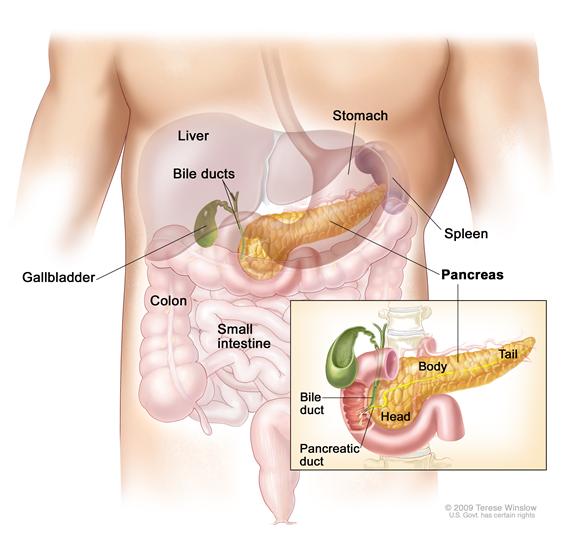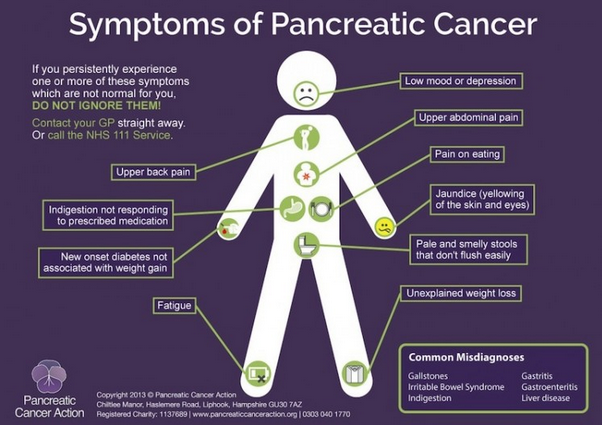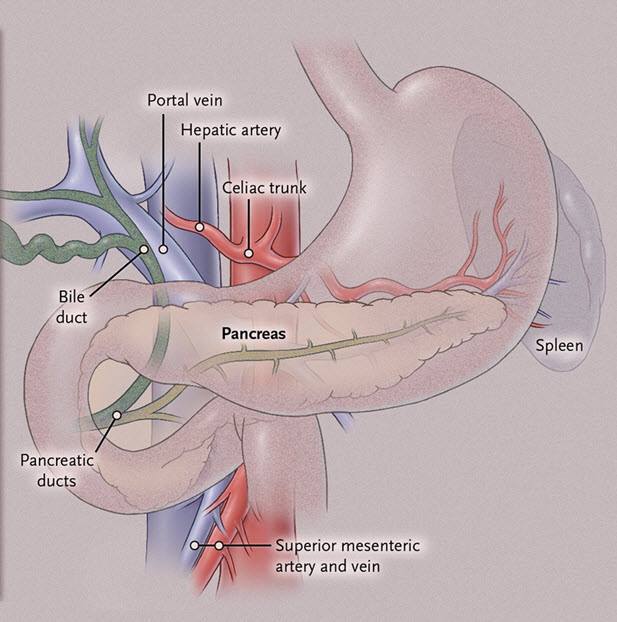
The pancreas is a gland in your body that resembles a pear cut in half. The pancreas lies directly under your stomach, and has two main functions. The first function of the pancreas is to aid in digestion. The pancreas helps to pass the bile that goes directly into your stomach to aid in the digestion of your food. The second function of the pancreas is to aid in the production of hormones such as insulin and glucagon. These hormones help in the regulation of the amount of sugar in your blood.
Pancreatic cancer is a cancer of the pancreas which can be stimulated by unhealthy habits such as smoking, or other factors such as a genetic predisposition to pancreatic cancer, or a history of diabetes or chronic pancreatitis. There are a variety of resources that you can use if you think you or someone you know might have pancreatic cancer. You can take a look at some of those resources on our Resource page, or you can connect with our affiliates such as Pancreatic Cancer Action Network. To learn more about the pancreas and pancreatic cancer, please click the link below.

According to the American Cancer Society, detecting pancreatic cancer’s symptoms can be very tricky. “Patients usually have no symptoms until the cancer has spread to other organs.” (American Cancer Society, 2014.) Usually screening tests or exams are utilize to find traces of markers that can signal a potentiality to have pancreatic cancer. If a doctor sees symptoms in a patient that might parallel that of one who has pancreatic cancer, then a doctor might order a blood test. In fact, blood tests are more likely to be used in patients who have already been diagnosed with pancreatic cancer. Why? Because the doctor needs to determine of treatments and/or therapy is effective in the patient.
If you have a family history of pancreatic cancer, a great way to get started is to speak with a genetic counselor or specialist. The American Cancer Society recommends talking to a genetic specialist because they can set up a testing for you and your family, and guide you in the findings and results of the test. Studies show that inherited DNA changes are thought to cause as many as 10% of pancreatic cancers. To learn more information about pancreatic cancer, and how to detect the symptoms please click the link below!

Cancer of the pancreas is predominantly adenocarcinoma and involves activating KRAS mutations in the large majority of cases. Surgical resection can be effective in localized disease; combination chemotherapy offers some palliation in advanced disease. The Now@NEJM blog has Clinical Pearls, Morning Report Questions, and free access to the new review article on this topic
A cancer diagnosis can put even the most organized person into a state of disarray. But there are steps you can take to ensure you’re best prepared for the road ahead.